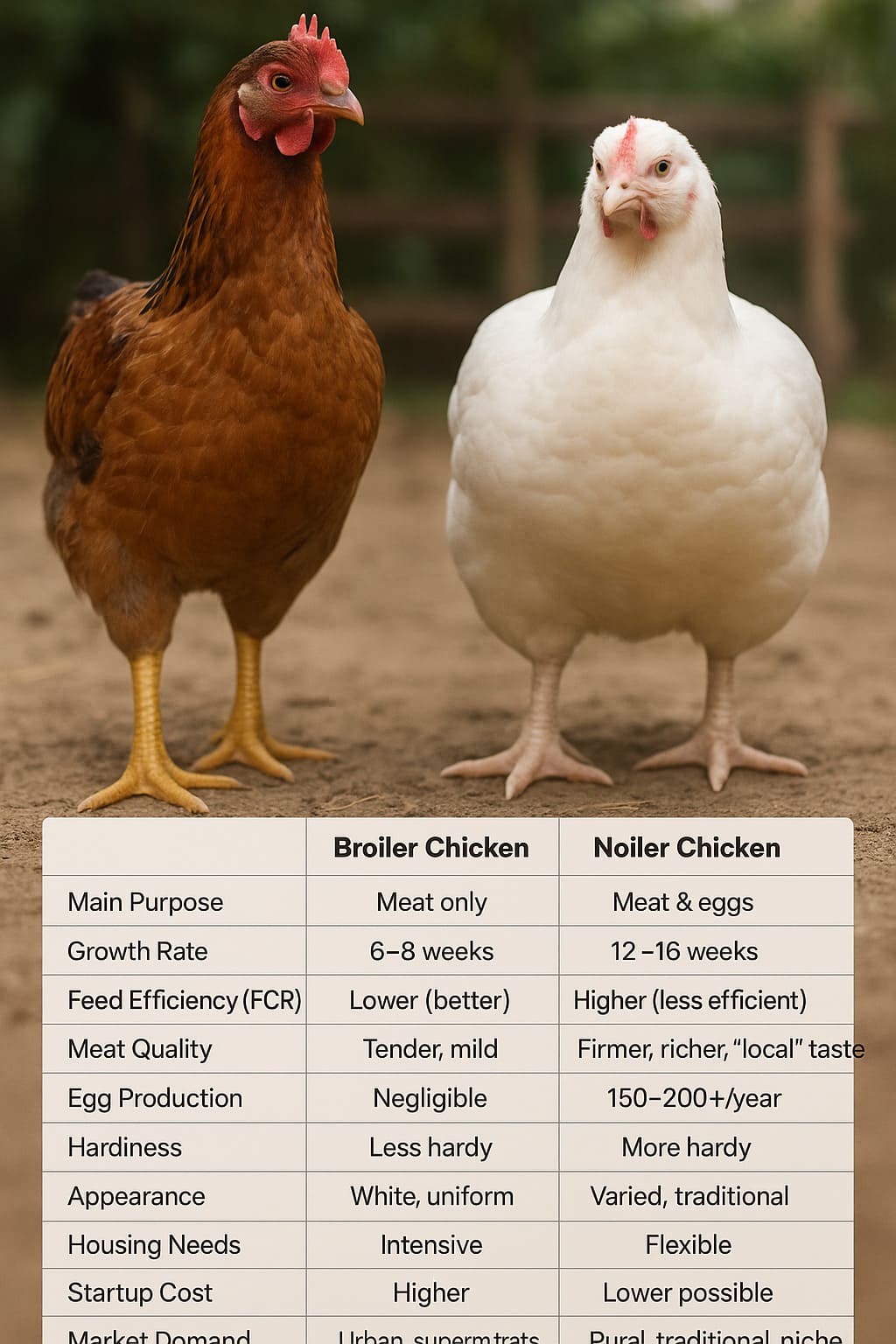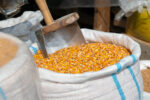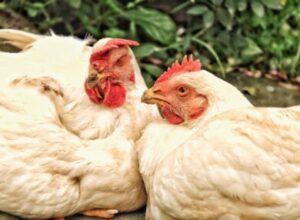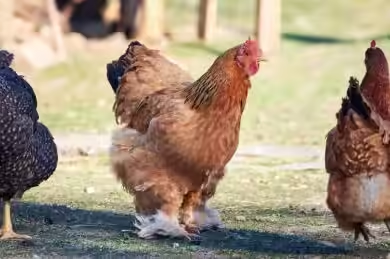Last updated on August 1, 2025
If you’re a Nigerian poultry farmer or planning to start, you’ve probably asked: Noiler chicken vs broiler chicken—which is better for my farm? This is one of the most important decisions you’ll make, and it can determine your profit, your risk, and even your day-to-day workload.
Broilers are famous for their speed and quick returns. Noilers are gaining ground for their ability to give both meat and eggs, and for surviving in tough conditions. But the difference between broilers and noilers goes far beyond just growth rate. The right choice depends on your market, your resources, and your goals.
This guide breaks down the 13 most important differences between broilers and noilers—with real data, expert quotes, and practical advice for Nigerian farmers. You’ll also learn the advantages and disadvantages of Noiler chicken, the risks of each breed, and how to decide which is best for you.





Wait! Are you also considering chickens for egg-laying? This guide is a deep dive into Broilers vs. Noilers for meat and dual-purpose farming. If you’re still deciding between meat, eggs, or a mix, start with our ultimate comparison of Broiler vs. Layer vs. Noiler chickens to find the perfect breed for your goals.
Want the full story on Noiler disadvantages? Read 13 Hidden Disadvantages of Noiler Chickens.
Curious about profit numbers? Check Is Noiler Chicken Profitable in Nigeria?.
Just starting out? See How to Start Noiler Chicken Farming With Just 10 Birds.

1. What Is the Main Purpose of Broilers and Noilers?
Broilers are bred for fast meat production, while noilers are dual-purpose chickens raised for both meat and eggs.
Broilers are ideal if your main goal is to produce meat for sale in the shortest time possible. Noilers, on the other hand, are designed to give you both a steady supply of eggs and a good amount of meat, which can help diversify your farm’s income and provide more food security for your household.
 🐓 Fast Growth Guide: How to Make ₦500,000 Monthly from Poultry Farming in Nigeria (The Exact Number of Chickens You Need!) →
🐓 Fast Growth Guide: How to Make ₦500,000 Monthly from Poultry Farming in Nigeria (The Exact Number of Chickens You Need!) →


“Noiler chickens are a game-changer for smallholder farmers in Nigeria. They are hardy, can survive on local feed resources, and provide both meat and eggs, which is a big advantage for food security and income diversification.”
— Dr. Ayoola Oduntan, Amo Farm Sieberer Hatchery (The Guardian Nigeria, 2022)
2. How Fast Do Broilers and Noilers Grow?
Broilers reach market weight in 6–8 weeks, while noilers take 12–16 weeks to reach a similar size.
Broilers allow you to cycle through more batches per year and potentially earn more frequent income. Noilers take longer to mature, but their slower growth is often offset by their ability to lay eggs and their resilience to common farm challenges.
“Broiler production is still the fastest way to make money in poultry, but it requires strict management and a reliable market. If you miss a cycle or have a disease outbreak, your losses can be huge.”
— Dr. Olufemi Oke, Poultry Association of Nigeria (BusinessDay Nigeria, 2023)



3. What Is the Feed Efficiency (FCR) of Broilers vs Noilers?
Broilers have a lower (better) feed conversion ratio (FCR) than noilers, meaning they need less feed to gain the same amount of weight.
A 2025 study from the Nigerian Journal of Animal Production found broilers needed about 1.8 kg feed per 1 kg gain, while noilers needed 2.4 kg (AJOL, 2025). Feed is 60–70% of your total cost in both systems.
Noilers can supplement with foraging, which can help offset some feed costs, especially in free-range or semi-intensive systems.
For better understanding you should check our post on how many bags of feeds does Broilers need, you can also use our calculator to calculate feed cost to avoid feed wastage.





4. How Does the Meat Quality of Broilers Compare to Noilers?
Broiler meat is soft, mild, and has lots of breast, while noiler meat is firmer, richer, and tastes more like “local” chicken.
Broiler meat is preferred in urban supermarkets and restaurants for its tenderness and uniformity. Noiler meat is often chosen in rural and traditional markets for its firmer texture and richer flavor, which many Nigerians associate with “real” chicken.
5. How Many Eggs Do Broilers and Noilers Lay?
Broilers lay almost no eggs, while noilers can lay 150–200+ eggs per year.
Noilers, while not as productive as specialist commercial layers, can provide a steady supply of eggs for home use or sale. This can be a significant advantage if you want to reduce your household’s food bills or have a second income stream from your flock. To see exactly how they stack up against the top egg-producers, you can compare all three breeds in our complete guide.

 Stop Losing Money! 15 Mistakes That Make Noiler Farmers Lose Money—And How to Avoid Them →
Stop Losing Money! 15 Mistakes That Make Noiler Farmers Lose Money—And How to Avoid Them →


“Noiler chickens have helped many rural women in Nigeria become more self-reliant. They can sell eggs regularly and still have birds to sell for meat during festive periods.”
— Dr. Elizabeth Ilori, Lagos State Ministry of Agriculture (Channels TV, 2021)
We have a comprehensive guide on How Many Eggs Can You Expect from Layers? (50 to 1000 Birds Explained with real calculator that will help you calculate it.)
6. Are Noilers or Broilers More Hardy and Disease-Resistant?
Noilers are generally more hardy and disease-resistant than broilers, especially in less controlled environments.
Broilers require close attention to temperature, hygiene, and feed quality. They are more likely to get sick or die if conditions aren’t ideal. Noilers are more adaptable and can handle fluctuations in weather, feed, and management. This makes them a safer choice for new farmers or those with less time for daily supervision.



A 2025 field survey by Amo Farm Sieberer Hatchery found that noiler flocks had 30% lower mortality rates than broilers in smallholder systems (The Guardian Nigeria, 2022).
7. What Do Broilers and Noilers Look Like?
Broilers are white, uniform, and blocky, while noilers come in mixed colors and look like “village” chickens.
Broilers are bred for uniformity, which is important for commercial processors. Noilers come in a variety of colors and look more like traditional Nigerian chickens, which can be a selling point in local markets.
8. What Are the Management and Housing Needs for Broilers vs Noilers?
Broilers need intensive, controlled housing, while noilers can thrive in free-range or semi-intensive setups.




Broilers do best in well-ventilated, temperature-controlled houses with strict biosecurity. Noilers can be raised in simpler shelters and are more suited to backyard or smallholder systems, where they can forage and supplement their diet with local resources.
If you have limited capital, noilers are more flexible. For a beginner’s setup, see How to Start Noiler Chicken Farming With Just 10 Birds.
9. What Are the Startup and Operating Costs for Broilers and Noilers?
Broiler farming requires higher upfront investment for housing and equipment, but you can recover your costs faster. Noilers allow you to start smaller and scale up as you learn, but you’ll need to be patient for returns.
A 2025 cost analysis from PoultryFarmGuide.com shows broiler setups can cost 30–50% more to start, but you get your money back faster—if you manage well.

10. What Is the Market Demand for Broilers vs Noilers in Nigeria?
Broilers are in high demand in cities, supermarkets, and restaurants, while noilers are increasingly popular in rural areas, traditional markets, and among health-conscious buyers.
A 2024 survey by the Poultry Association of Nigeria found that 68% of urban buyers preferred broilers, while 54% of rural buyers preferred noilers or local breeds for taste and perceived health benefits (Poultry Association of Nigeria).
11. How Do Income Streams Differ for Broilers and Noilers?
Broilers provide income only from meat, while noilers provide income from both meat and eggs.
Noilers offer more ways to earn, which can help stabilize your income if meat prices drop or if you want to sell eggs during the year. This is a key advantage of noiler chicken in Nigeria, especially for smallholder and women farmers.
12. What Are the Risks of Broiler vs Noiler Farming?
Broilers carry higher financial and management risk, while noilers are more forgiving but slower to profit.
Broilers can be very profitable, but mistakes are costly. Noilers are less likely to “crash” if you make a management error, but you’ll need to wait longer for your investment to pay off.
Clarification:
Hardiness is about disease and weather resistance; risk profile is about financial and management risk.
13. Which Is Better for Beginners: Broilers or Noilers?
Noilers are easier for new or small-scale farmers, while broilers require more technical skill and capital.
If you’re just starting out, noilers are less likely to punish your mistakes and can be a good way to learn poultry farming before scaling up.
Quick Comparison Table – Noiler Chicken vs Broiler Chicken
| Feature | Broiler Chicken | Noiler Chicken |
|---|---|---|
| Main Purpose | Meat only | Meat & eggs (dual-purpose) |
| Growth Rate | 6–8 weeks | 12–16 weeks |
| Feed Efficiency (FCR) | Lower (better) | Higher (less efficient) |
| Meat Quality | Tender, mild | Firmer, richer, “local” taste |
| Egg Production | Negligible | 150–200+/year |
| Hardiness | Less hardy | More hardy |
| Appearance | White, uniform | Varied, traditional |
| Housing Needs | Intensive | Flexible |
| Startup Cost | Higher | Lower possible |
| Market Demand | Urban, supermarkets | Rural, traditional, niche |
| Income Streams | Meat only | Meat & eggs |
| Risk | Higher | Lower |
| Beginner Friendly | Less | More |
Key Takeaway:
Broilers are best for fast, high-volume meat production and quick returns, but require more skill, capital, and risk management. Noilers are slower but offer dual income, resilience, and flexibility—especially for beginners or rural markets. The best choice depends on your market, your resources, and your experience.
My Experience Raising Both Breeds
When I started, I raised broilers for quick cash, but lost a batch to heat stress and poor ventilation. I switched to noilers and, while the returns were slower, I found the birds easier to manage and the steady supply of eggs helped my family’s food budget. Many farmers I know now keep both breeds—broilers for fast turnover, noilers for steady income and resilience.
What Farmers Say
“I used to raise only broilers, but after losing money during a disease outbreak, I added noilers. Now, even if meat prices drop, I still have eggs to sell every week.”
— Mrs. Adebayo, Ogun State (from Channels TV)
“Noilers are not as fast as broilers, but they survive better in my village. I don’t worry as much about sudden losses.”
— Musa, Kaduna (from The Guardian Nigeria)
Which Is More Profitable: Noiler Chicken or Broiler Chicken?
There’s no single answer. Broilers give you fast returns, but you need skill and capital. Noilers are slower, but you get eggs, resilience, and flexibility—especially if you’re new or in a rural area.
For the numbers, see Is Noiler Chicken Profitable in Nigeria?.
How Should You Decide Between Broiler and Noiler?
- Do you need fast cash flow, or can you wait for steady income?
- Can you manage strict housing and biosecurity?
- Is your market urban (broilers) or rural/traditional (noilers)?
- Are you a beginner or experienced farmer?
Real-World Scenario: Broiler vs Noiler in Practice
Farmer A lives in Abuja, has N1 million to invest, wants quick returns, and can manage intensive housing. Broilers are likely the best fit.
Farmer B lives in a rural area, has N300,000, wants eggs for the family and some meat to sell, prefers a simple setup. Noilers are the better choice.
Conclusion
The “best” chicken is the one that fits your market, your skills, and your goals. Don’t just follow the crowd. Start small, learn fast, and adjust as you go.
Have you raised broilers or noilers? What worked for you? Drop your story or question in the comments—I read every one.
Related Articles:
- 13 Hidden Disadvantages of Noiler Chickens
- Is Noiler Chicken Profitable in Nigeria?
- How to Start Noiler Chicken Farming With Just 10 Birds
- 9 Powerful Advantages of Raising Dual-Purpose Noiler Chickens
FAQ
Which grows faster, broiler or noiler?
Broilers reach market weight in 6–8 weeks; noilers take 12–16 weeks.
Can noilers be raised for eggs?
Yes, noiler hens can lay 150–200+ eggs per year.
Which is more profitable?
It depends on your market, costs, and goals. Broilers are faster, noilers offer dual income.
Are noilers more disease-resistant?
Generally, yes—especially in less intensive systems.
Key Takeaway:
Don’t just pick a breed because everyone else does. Match your choice to your market, your resources, and your experience. If you’re unsure, start small, track your results, and adjust.
If you have a specific question about your farm, drop it in the comments or email me—I’m happy to help.


